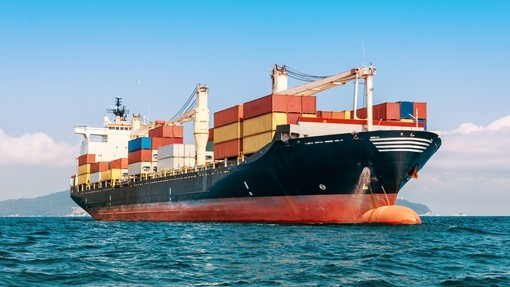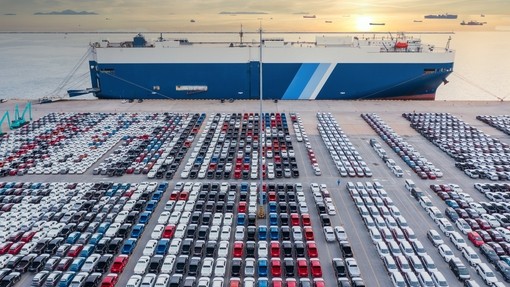Changes to the LMAA Terms 2017

Details
Background
On 7 February 2017 the London Maritime Arbitrators Association (LMAA) published revised terms and procedures applying to arbitration proceedings commenced on or after 1 May 2017.
Revisions have been made to the LMAA Terms, LMAA Small Claims Procedure and LMAA Intermediate Claims Procedure (collectively ‘the LMAA Rules’).
This article does not detail every amendment made but highlights the key changes to the LMAA Rules. The full revised terms and procedures are available from the LMAA website.
The Small Claims Procedure
The recommended limit for the application of the Small Claims Procedure has been increased from US$50,000 to US$100,000 in the absence of agreement to the contrary between the parties.
The LMAA Terms
Failure to appoint an arbitrator
Two new paragraphs, 10 and 11, have been added to clarify the position where a party refuses or fails to appoint an arbitrator within the specified timeframe. Paragraph 10 sets out that in these circumstances section 17 of the Arbitration Act 1996 (the Act) will apply, by which the non-defaulting party may give to the defaulting party seven days’ written notice of their intention to appoint a sole arbitrator. In the absence of a response to such a notice the non-defaulting party’s arbitrator will be become the sole arbitrator in the reference and any subsequent award binding on both parties.
Paragraph 11 deals with one of the most common frustrating issues in relation to constitution of an arbitral tribunal and sets out the procedure where the arbitration agreement provides for a sole arbitrator but the parties are unable to agree on the sole arbitrator within 14 days of one party calling for arbitration. In such circumstances, either party may apply in writing for the president of the LMAA to make the appointment. The application must be accompanied by a remittance to the LMAA for making the appointment and an explanation of the issues likely to arise and as any particular expertise required from the arbitrator. The president will then appoint a sole arbitrator and give notice of the appointment to the parties.
While paragraph 10 does not materially alter the position under the 2012 LMAA Terms, it does provide additional clarification. However paragraph 11 is a welcome addition and provides a (likely) less costly alternative to the procedure under the Act, which provides for application to the Court in such circumstances.
Powers of the tribunal
New paragraph 16(b)(i) sets out that where two or more arbitrations appear to raise common issues of fact or law and the tribunals have ordered that they shall be conducted and (where an oral hearing is directed) heard concurrently, the tribunals may now give directions as to the time limits for service of submissions (n.b. this paragraph also appears as a new addition to the 2017 LMAA Intermediate Claims Procedure at 18(a)).
This is once again a welcome addition to the current terms and seeks to address a common issue whereby significant delays can be incurred in relation to the service of submissions in claims arising under ‘back-to-back’ charterparties, due to the submissions being passed up and down the charterparty chain. Usually concurrency is ordered much later in the arbitral proceedings; however as this paragraph specifically sets out the tribunals’ powers in relation to the submissions stage, this may encourage orders of concurrency in the earlier stages of proceedings, which would be desirable in terms of saving costs and increasing efficiency.
Period for the parties to agree procedural directions
New paragraph 11(b) has been added to the second schedule of the LMAA Terms and provides the parties with 21 days following the date of exchange of questionnaires to agree further procedural directions between themselves, or make submissions in relation to such directions. This provision implements in the LMAA Terms rules contained at present only in the guidelines on procedure under the LMAA Terms 2012.
Cost-effectiveness and efficiency of the proceedings
New paragraph 13 of the second schedule of the LMAA Terms requires the parties to ensure the arbitral process is as cost-effective and efficient as possible, with particular reference to a lengthy checklist set out in the fourth schedule.
The checklist comprises of guidelines issued with the view to making the decision-making process as cost-effective and efficient as possible. It requires the parties to consider whether their case is suitable to be decided on documents alone, and highlights the appropriate presentation of factual evidence, expert evidence, documents for the hearing and skeleton arguments. The parties are encouraged to discuss these items and ensure that they are provided to one another and the tribunal in a manner which will maximise the efficiency of the proceedings. It may be that parties will be required to show that they have complied with all aspects of the checklist in order to satisfy paragraph 13.
Assessment of costs
In conjunction with paragraph 13 as set out above, new paragraph 19(b) of the second schedule of the LMAA Terms specifically entitles the tribunal, when exercising its discretion as to liability for costs and assessing costs, to take into account unreasonable or inefficient conduct by a party, with specific reference to non-compliance with the checklist of the fourth schedule and costs estimates provided in the LMAA questionnaire.
This appears to be a reflection of the position already in practice under the 2012 LMAA Terms, but now with an express duty of the parties to use the checklist as the foundation to decide whether they have conducted the proceedings in a cost-effective and efficient manner. It is possible that there may be future arguments and disputes in relation to evidencing compliance with the new provision and it is possible that further guidance will be required.
Paragraph 19(b) also sets out that whilst the tribunal may take account of offers made on a without prejudice basis, the English High Court procedure as to Part 36 offers are not applicable to arbitrations conducted under 2017 LMAA terms. Again, this is a reflection of the position already in practice; however as it is now common for parties to make without prejudice offers which threaten costs sanctions akin to those found under Part 36 of the Civil Procedure Rules, the new provision states in more clear terms that any tribunal may not feel obliged to issue a cost penalty.
Agreements as between the parties
New paragraph 21 of the second schedule of the LMAA Terms sets out that any order or direction as agreed by the parties shall be deemed to be/take effect as an order of the tribunal. Again, this is a reflection of normal practice under the 2012 LMAA Rules; however it may prove helpful to add greater formality to agreements reached between the parties during the course of proceedings in order that such agreements are treated with the same significance as orders/directions given by the tribunal itself.
Conclusion
‘If it ain’t broke, don’t fix it’ – this being the approach taken by the LMAA committee when considering amendments to the LMAA Rules. The changes are therefore not over-dramatic. However, clarification has been added in a number of areas which may help to maintain the attractiveness of London arbitration as a dispute resolution mechanism.
The most significant change is the new obligation placed on the parties to comply with the lengthy schedule 4 checklist, to ensure that they ‘actively consider’ ways in which to make the arbitral process as cost-effective and efficient as possible.






